Introduction
Disaster and emergency planning is an integral aspect of governmental activity. Usually, it is grounded on a National Risk Register, which is a report that determines, evaluates, and classifies potential threats to national security and safety. In the context of the FIFA 2022 World Cup in Qatar, the issue of safety became a primary concern of the country (‘Qatar plans to make FIFA 2022 World Cup the most secure sporting event ever’ 2018). This document analyses disasters and emergencies that are to be considered for inclusion in a future National Risk Register for the State of Qatar to contribute to safety and security during the 2022 World Cup.
Aim & Objectives
This project aims to discover disasters and emergencies in the context of the 2022 World Cup to be included in the National Risk Register. The objectives are as follows:
- To define ten risks of disasters and emergencies that can be faced by the State of Qatar during preparation for and hosting of the 2022 World Cup.
- To assess the identified risks by their probability and the severity of consequences.
- To analyze every of the identified risks eliciting their historical information, current mitigation methods as well as lead agencies and supporting agencies.
- To summarize the necessity of including these risks in the National Risk Register.
Scope
The document includes the major risks of disasters and emergencies of different probability that should be considered for the 2022 World Cup. Every risk is identified and its historical background is provided. Also, this report mentions the major mitigation activities as well as agencies that are responsible for an issue related to a disaster or an emergency. Still, this work does not include a detailed representation of interventions and safety measures used to address the mentioned risks.
Risk Assessment Methodology
The risk assessment methodology for this document will be grounded on such factors as the likelihood of disaster or emergency incidence and their expected consequences. This method applies a risk matrix (see Figure 1), which allows comparing diverse hazards and evaluate their significance for every country. The likelihood is ranged from almost certain to rare and consequences are scaled from marginal, which are the least dangerous, to severe, which lead to the worst outcomes. For example, if an analyzed disaster is unlikely to happen and its consequences are considered to be minor, it has a low risk, which is marked green in the matrix. At the same time, a disaster that will almost certainly happen and will bring severe consequences is treated as the one that high risk and is marked red in the matrix. Disasters and emergencies that have a medium risk are marked yellow in the suggested matrix.
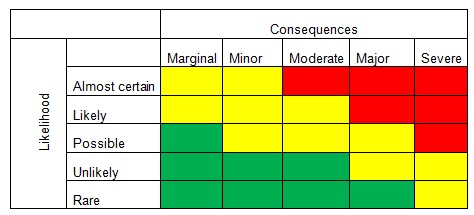
Risk Assessment
The following risks have to be considered by the State of Qatar and included in the National Risk Register. Their evaluation can be found in Figure 2.
- H1. Extreme weather conditions
- H2. Disease outbreak
- H3. Terrorism
- H4. Oil and gas leakage
- H5. Explosion
- H6. Flood
- H7. Major fire
- H8. Major transport accidents
- H9. Food safety
- H10. Earthquake
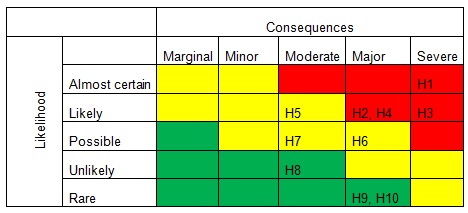
Findings
The task of this section is to analyze each of the mentioned risks in more detail.
H1. Extreme Weather Conditions
The major risk for visitors who come to Qatar for the 2022 World Cup is its extreme weather conditions. Thus, the average daily temperature in summer is more than 100°F, which is significantly more than in native countries of tourists (‘Average weather in Doha’ 2018). Extreme heat can cause serious health problems and negatively influence the incidence of other disasters such as explosions or fires.
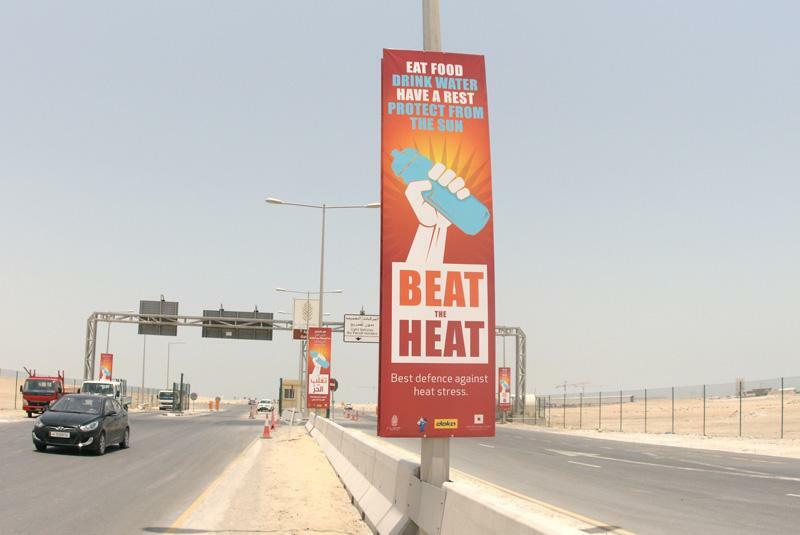
Historical information
The heat is integral to the climate of the Middle East countries. Some of the issues that have been troubling society include people working in the open air. There were episodes when workers involved in the construction of infrastructure for the 2022 World Cup had significant health problems.
Current mitigation methods
Some programs support water consumption during heat and appeal to people not to stay outside when it is particularly hot.
Lead agencies
Qatar Meteorology Department..
Supporting agencies
Public organizations and volunteering agencies, General Directorate of Civil Defence.
H2. Disease Outbreak
One of the major risks in Qatar during the 2022 World Cup is a disease outbreak, which can be caused by many new people coming to the country from other locations with a diverse epidemiologic environment. The country is relatively small and has a hot climate. These issues contribute to the spread of communicable diseases.
Historical information
Currently, Middle East Respiratory Syndrome Coronavirus is a concern of Qatar. On the whole, there are no big disease outbreaks registered in Qatar, but travel health advisories recommend Hepatitis A, Hepatitis B, and Typhoid vaccinations to individuals traveling to Qatar.
Current mitigation methods
The current mitigation method for disease outbreaks in the collection of surveillance data about every reported case of a communicable disease such as Middle East Respiratory Syndrome Coronavirus. Also, immunization is a concern of health care providers (Ministry of Public Health n.d.).
Lead agencies
Qatar has high health care standards developed and managed by the Supreme Council of Health. This state agency is responsible for regulating every aspect of Qatar’s healthcare system.
Supporting agencies
The supporting health care agencies in Qatar include ones in cities and towns as well as diverse health care centers throughout the country.
H3. Terrorism
Terrorism is a risk that is not likely to affect Qatar. The global terrorism index score of Qatar is 0.115, which is a mild risk (Smith 2017). Still, it can increase during an international sporting event due to many individuals coming from all over the world.
Historical information
Historically, Qatar was blamed for the support of terrorism in the region. Still, in recent years, the country has been an active participant in the attempts to combat terrorism (Bar’el 2018).
Current Mitigation Methods
Qatar supports the counter-extremism project to mitigate the level of terrorism both globally and in the region. Moreover, the country has close military relationships with the United States although the US government accused Qatar of support of global extremist groups.
Lead agencies
Qatar has a National Counter-Terrorism Committee, which was created in 2007.
Supporting agencies
General Directorate of Civil Defence.
H4. Oil and Gas Leakage
Oil and gas leakage is threatening Qatar because it is the country with the third extraction volume in the world. Consequently, the active development of the oil industry increases the risk of an oil spill, which is threatening the environment as well as many tourists who come to visit the World Cup.
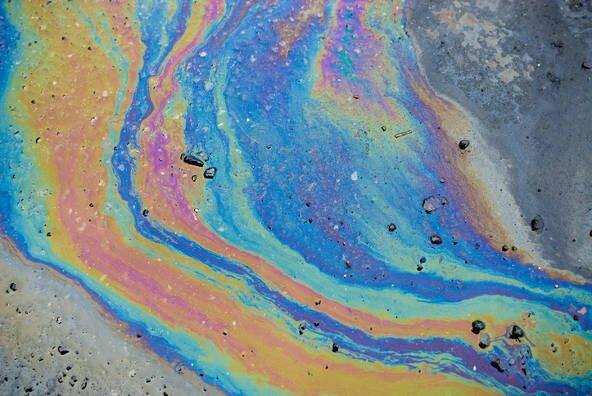
Historical information
Qatar makes extensive investment in the safety of oil and gas extraction as well as to environmental issues. There are no big leakage cases recorded in Qatar recently.
Current mitigation methods
The country develops oil spill contingency plans. Moreover, the government-owned company Qatar Petroleum has the Oil Spill and Emergency Response Department, which reacts to cases of the oil spill and provides preventive safety measures.
Lead agencies
Ministry of Energy and Industry of Qatar.
Supporting agencies
Qatar Petroleum.
The Oil Spill and Emergency Response Department, General Directorate of Civil Defence
H5. Explosion
There is a high risk of explosion in Qatar, which is explained by active oil extraction with its following transportation in conditions of extremely high temperatures. Apart from this, an explosion can be a result of a terrorist attack or gas tanks that explode due to poor adherence to the safety measures or because of heat. During the 2022 World Cup, an explosion can affect more people than usual.
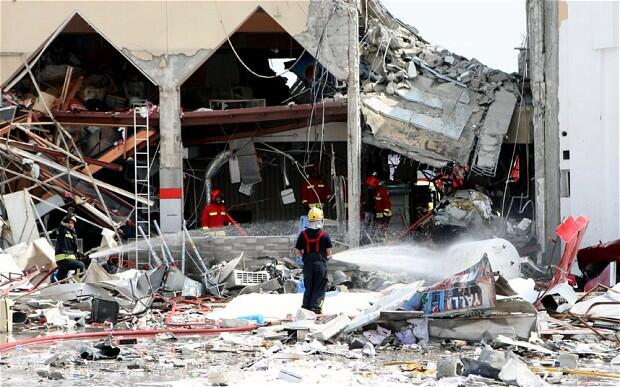
Historical information
There are no records of big explosions related to oil extraction. Still, explosions of gas tanks in homes or public buildings are not rare.
Current mitigation methods
Promotion of safety measures when utilizing gas.
Lead agencies
Agencies of public security.
Supporting agencies
Fire protection departments, General Directorate of Civil Defence.
H6. Flood
One of the natural hazards for Qatar is the flood. The arid climate of Qatar, which is typical of a Middle East country, is characterized by periodic rainfalls (Al Mamoon et al. 2015, p. 323). They result in excessive rainfall-runoff and lead to floods, which can hurt fans traveling to attend the sporting event.
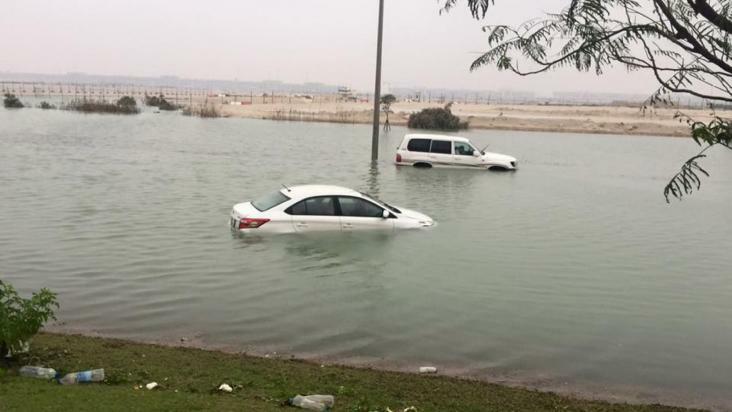
Historical information
One of the biggest floods in Qatar was observed in Doha in 1995 when some streets went underwater.
Current mitigation methods
The development of the national flood study project was started by the Ministry of Municipality and Urban Planning (Al Mamoon et al. 2015, p. 324). It focuses on a flood modeling approach that will allow reducing the harmful effect of floods.
Lead agencies
Qatar Meteorology Department.
Supporting agencies
Ministry of Municipality and Urban Planning, General Directorate of Civil Defence
H7. Major Fire
Major fire is one of the mild risks in Qatar. Still, it can result in many victims in case it breaks off in an inhabited area or a sporting facility because the fire spread quickly due to extreme heat. The particular danger for Qatar is the fire in the neighborhood of oil extraction facilities.
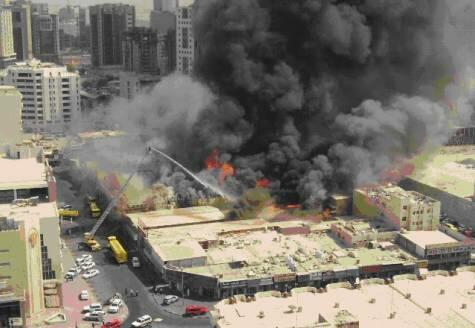
Historical information
There many cases of fires that lead to people’s death such as in shopping centers or other public places. Still, in most cases, the fires are successfully managed.
Current mitigation methods
One of the applicable strategies is the development of fire protection systems that can include fire alarm and fire fighting. Moreover, fire-saving training is provided regularly.
Lead agencies
Civil defense department.
Supporting agencies
Fire protection departments, General Directorate of Civil Defence.
H8. Major Transport Accidents
The risk of transport accidents is increasing in Qatar. Still, the road accident deaths in the country are far below the world’s average (Mohamed 2018). Nevertheless, these statistics can be changes as a result of tourist inflow during the 2022 World Cup.
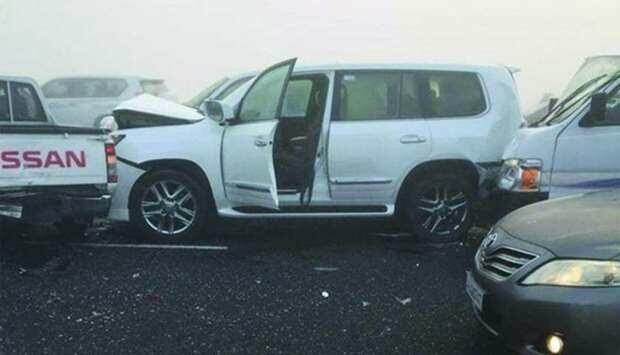
Historical information
Historically, the major causes of road accidents in Qatar have overturned skid crashes and hitting fixed objects.
Current mitigation methods
Qatar is a member of the Global Road Safety Partnership and developed the National Road Safety Strategy.
Lead agencies
Ministry of Public Health.
Supporting agencies
Ministry of Municipality and Urban Planning, General Directorate of Civil Defence.
H9. Food Safety
The problem of food safety is of particular importance because about 90% of the food in Qatar is currently imported (Ministry of Public Health 2017). In case of an increased tourist inflow during the World Cup events, the issue of food safety should be considered.
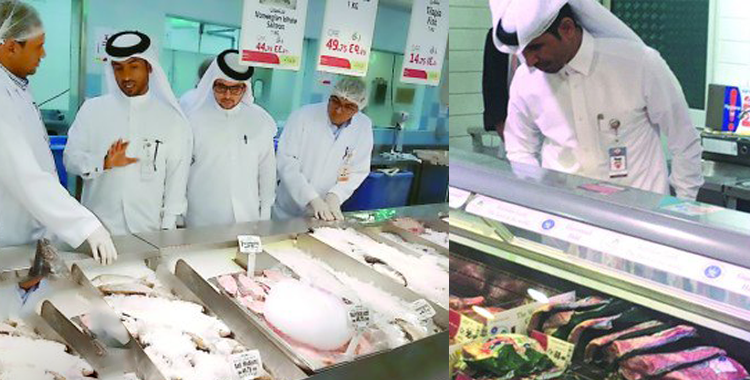
Historical information
The increase of the part of imported products in Qatar contributes to the development of food safety issues.
Current mitigation methods
The major role in mitigating the risks related to food safety belongs to the Ministry of Public Health. Also, the focus is on strengthening the public awareness of dangers related to food.
Lead agencies
Ministry of Public Health.
Supporting agencies
Food and Nutrition Services, General Directorate of Civil Defence.
H 10. Earthquake
Earthquake is one of the natural disasters which lead to a collapse of buildings and numerous victims among the population. Still, this disaster is not likely to happen in Qatar since the country is considered to be one with the lowest risk of natural disasters in the world (‘Qatar is world’s safest country’ 2015, para. 1). Consequently, it should not affect the visitors to the 2022 World Cup.
Historical information
Historical documents do not have any data about significant earthquakes on the territory of Qatar. Both regional and international earthquake centers have evidence of only some small and medium magnitude earthquakes in and around the country. The only earthquake with a magnitude of 4.7 in Qatar was registered near Doha city in 1929.
Current mitigation methods
Currently, mitigation of earthquakes in Qatar is provided by the Qatar Seismic Network which records all kinds of seismic activity. It is necessary because the active extraction of oil and gas can increase the risk of an earthquake.
Lead agencies
Qatar Meteorological Department.
Supporting agencies
Qatar Seismic Network, General Directorate of Civil Defence.
Conclusion
There are many risks that Qatar can face during the 2022 World Cup and preparation for the event. Still, the development of the National Risk Register for the State of Qatar will contribute to the creation of more effective mitigation strategies because the awareness of risk is already a contribution to its successful management. The major risks for the country are related to its natural conditions and key industry. Thus, extreme weather conditions can become a trigger for other disasters such as fires or explosions, while disease outbreaks can be rapid in conditions of the hot climate. Moreover, Qatar can face a danger of oil and gas leakage as well as explosions, terrorism, and big fires that can be stimulated by high temperatures as well. One of the possible natural disasters that can develop due to specific weather conditions is a flood, but it is less dangerous. Another issue to consider is the risk of major transport accidents that are also frequent despite a well-developed infrastructure. Food safety should also be considered because of the active import of products by Qatar. Finally, the risks of an earthquake are the lowest for the country, but should also be considered due to its high global prevalence and danger.
References
Al Mamoon, Regan, B, A, Sylianteng, C, Rahman, A, & Abd Aldaker, AA 2015, ‘Flood study in Qatar – challenges and opportunities.’ 36th Hydrology & Water Resources Symposium, (HWRS 2015): The Art and Science of Water, 2015, Hobart, Tasmania pp. 323-330.
Average weather in Doha2018, Web.
Bar’el, Z 2018, ‘The Qatar dilemma: when even a supporter of terrorism can be an Israeli ally,’ Web.
Ministry of Public Health n.d., ‘Communicable diseases,’ Web.
Ministry of Public Health 2017, ‘Food safety,’ Web.
Mohamed, S 2018, ‘Road accident deaths in Qatar far below world average,’ The Peninsula, Web.
Qatar is world’s safest country in terms of natural disasters: report 2015, Web.
‘Qatar plans to make FIFA 2020 World Cup the most secure sporting event ever’ 2018, Doha News, Web.